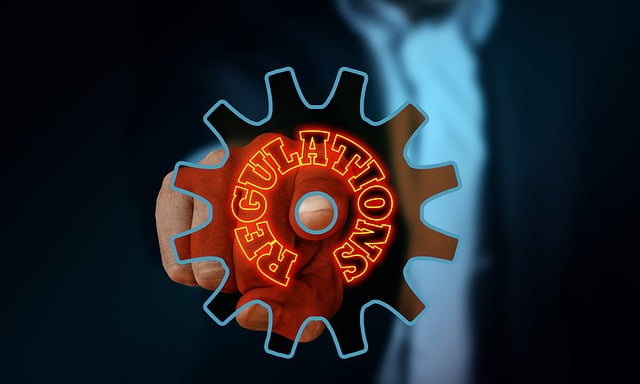
No More "Chevron Deference": A Primer for Nonprofits
12.19.2024 | Linda J. Rosenthal, JD

In the final weeks of 2017, there was a frenzy of activity on Capitol Hill. The GOP leadership and the White House were laser-focused on overhauling the federal tax code by the Christmas recess.
Along the way, they skipped a number of the usual niceties: thoughtful drafting, committee hearings, bipartisan debate and consideration – to name a few. Indeed, the Tax Cuts and Jobs Act of 2017 (TCJA ‘17) was all so rushed that “[m]any lawmakers privately acknowledged they had not read the entire bill before they voted to pass it; they were surprised and dismayed at many parts of this hasty legislation.
The nonprofit sector was shocked as well by several of the new laws. Among the most troubling provisions was an unprecedented tax imposed on the transportation-related fringe benefits that many nonprofits give their employees. Throughout 2018 and 2019, the howls of protest were loud and continual against this “reviled” law that “never made sense to anyone and that forced thousands of front-line nonprofits to divert [time] and millions of dollars away from their missions.”
Finally, it was enough that even ordinarily tone-deaf legislators figured out that the “hugely unpopular tax” had to go. In Poof! The Nonprofit Parking Tax is Gone (January 7, 2020), we explained how a retroactive repeal of this provision was tossed into the final Congressional appropriations of 2019 that headed off yet another threatened government shutdown. That was welcome news.
Sadly, though, this Christmas gift package did not include a hoped-for elimination of an even more unpopular element of TCJA ‘17: namely, the unwelcome changes to the unrelated business income tax that include requiring nonprofits to “silo” or “bucket” each of their “trades or businesses” and calculate the UBIT tax separately.
But there is at least a significant development in interpreting and applying this complex, ambiguous statute. On April 24, 2020, the Treasury Department and the Internal Revenue Service formally announced proposed regulations. Following standard federal administrative procedure, there is a 60-day period for public comment ending on June 23, 2020.
“Until the 2017 tax law, nonprofits were treated the same as for-profit businesses when it came to taxable business income – revenues and expenses were aggregated and taxes paid on the excess.” But that legislation “singled out nonprofits with unrelated business income for a punitive tax….” Now, organizations may not use losses from one unrelated trade or business – or silo – to offset income from a different unrelated trade or business. Another change relates to loss carryforwards and carrybacks. Beginning January 1, 2018, any losses from one unrelated business activity may only be carried forward to later years and used only to offset income from that same “silo”; carrybacks to earlier years are eliminated.
But this statute – new section 512(a)(6) – did not include rules to help nonprofits figure out if they have more than one unrelated trade or business silos or to identify and categorize these separate silos.
In 2018, Treasury and the IRS published interim “guidance” on these points. A key feature of Notice 2018-67 is reference to an existing standard – the North American Industry Classification System (NAICS) – that is used for collecting and analyzing statistical data on the United States business economy. That system uses a 6-digit code-number method. Nonprofits are currently required to self-identify the proper separate categories for each business activity.
Using this 6-digit code system has been like trying to plug a nonprofit “square” into one or more business-community round “holes.” It has been challenging, even though Notice 2018-67 permits an exempt organization to use and rely on a reasonable, good faith interpretation of Internal Revenue Code sections 511 through 514 when deciding if it has more than one unrelated trade or business for purposes of the UBIT silo rules.
“Nonprofits made clear” in earlier public comments on Notice 2018-67 that they were being asked to break “down their various unrelated business income into dozens or even hundreds of separate categories, leading to burdensome compliance costs, inconsistency, and arbitrariness.”
The new proposed regulations were published in the federal register on April 24, 2020. See Unrelated Business Taxable Income Separately Computed for Each Trade or Business.
This 115-page document is “deep in the weeds” and not recommended for light, quarantine reading. Nevertheless, it’s important for the nonprofit community to weigh in on it; Treasury and IRS officials appear to be open to persuasion by thoughtful commentary.
Perhaps the most significant change from Notice 2018-67 to the new proposed regulations involves a modified use of the NAICS classification system. The suggested rule now permits an exempt organization generally to identify its separate trades or businesses using only the first two digits of the NAICS codes. There are just twenty two-digit codes representing an industry sector. That slimmer number of categories means that organizations may be able to group together far more business activities into a single silo. For instance, an organization can, apparently, group together all types of accommodations and food service. That is certainly a welcome change.
There are also important sections of the proposed regulations that deal with issues related to investment income and net operating losses.
According to early reaction by David Thompson, vice president for public policy at the National Council of Nonprofits, the just-issued proposed regulations are “perhaps the least bad option for implementing a very bad law.” He adds that these siloing requirements “are seen by many in the nonprofit sector as a punitive and unnecessary additional tax imposed on exempt organizations that they hope will be repealed like the parking tax.”
An additional factor that could perhaps tip the scales in the coming months in favor of outright appeal by Congress is the extraordinarily challenging climate nationwide brought on by the COVID-19 crisis. At a time when the nonprofit sector is being asked to step up and help out a much larger segment of Americans in need, our national legislators should lean toward removing unnecessary burdens.
— Linda J. Rosenthal, J.D., FPLG Information & Research Director
